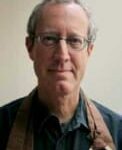Question: All my life I’ve defined myself through my accomplishments and others’ approval. Now I don’t have a real inner sense of self. My therapist says I need a healthy ego but Buddhism says ego is the problem. So do I have to choose between healthy self or non-self?
Answer: It’s not easy straightening out the different ways that Buddhism and Western psychology talk about the self and the ego. As a Buddhist teacher and psychoanalyst, I’ve heard people asking the question you raise for many decades.
When you speak of an “inner sense of self,” what do you mean? An intrinsic feeling of value just as you are, without having to accomplish anything or please anyone? The psychological “ego” is a set of capacities that are not lost as a result of Buddhist practice.
The negative sense of “ego” used in Buddhism refers to our common self-centered way of organizing our reality. The word “self” has many uses and meanings, but when we say it is empty or nonexistent, it is not that we are trying to make it go away. Rather, we are trying to be clear about what the self already is—constantly changing and always dependent on its relational context.
The sense of self that your therapist supports might actually be closer to this “no self” than you think. No self is a healthy self; it refers to a non-self-conscious, nonjudgmental acceptance of the changing, interdependent nature of who and what we are. This is a state in which we freely and appropriately function and respond in a non-self-centered way.
People sometimes get involved in Buddhism to escape the problem of being or becoming themselves. But bypassing the psychological isn’t what makes us “spiritual.”
These aspects of ourselves develop in tandem and there is no conflict between them. The values and form of life of a monk may look “selfless” in one sense, but their discipline, commitment, endurance, and compassion all are hallmarks of a psychologically strong and healthy self. Continue your two practices of meditation and therapy. They will support and reinforce each other.

